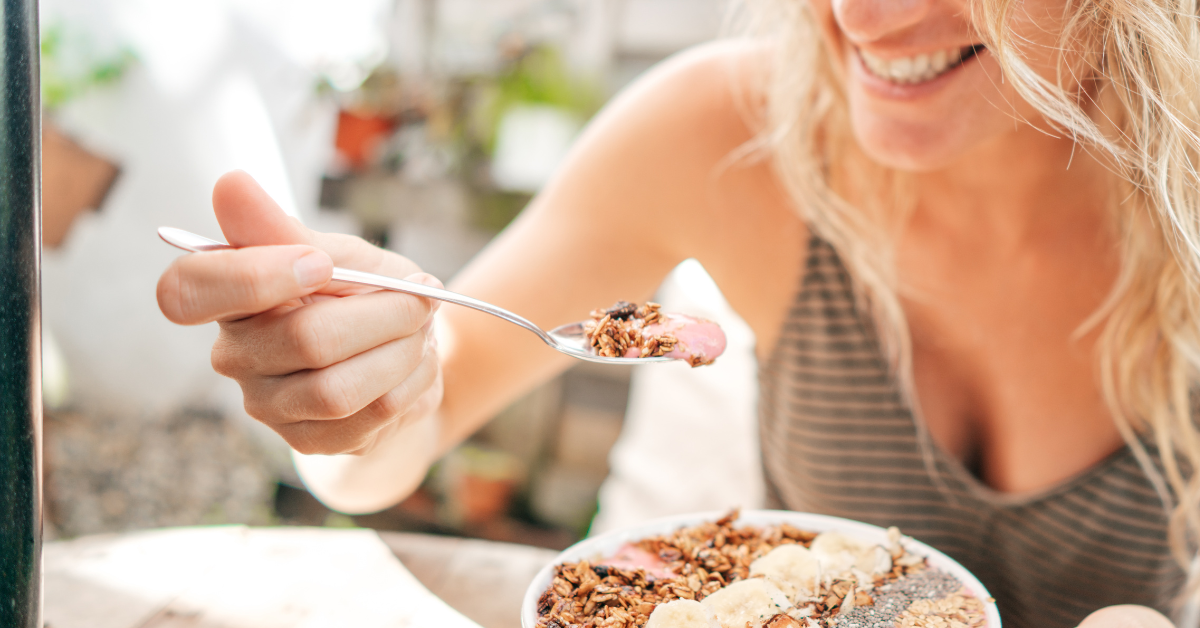Conversations around digestion and food can be loaded and emotional. I want to begin by stating that my intention for this blog is to help take some of the heaviness around food and eating away and not to impose any specific diet.
Stress around food is more destructive than the food itself. Said another way: your mindset around eating is more important than the food you’re eating.
If you’re anything like me, with lots of thoughts about what’s good and bad and I shouldn’t eat this or shouldn’t eat that due to diet culture, hearing this is revolutionary. All of our lives we hear about what we should or shouldn’t be eating, but we’re never taught that our mindset around eating matters.
So what mindset or frame of mind should we have when we eat?
Eating a good frame of mind. Don’t cook or eat when you’re angry, in a hurry, stressed or to self-medicate.
Modern science backs this up: when we’re stressed or angry the sympathetic nervous system is activated. You might have heard this called the fight-flight or freeze response. When this response is activated, your body is thinking about survival and unfortunately digestion is not important when you’re in danger. When you’re stressed, your body diverts energy from digestion to other things like the big muscles in your body that would help you to flee or fight. How does your body respond to stress? Do you crave things like carbs or are you less hungry? Do you notice your digestion slowing down, feeling heavy after eating, maybe experiencing constipation?
Cook and eat with the bhāvana (attitude) of gratitude, nourishment. Let what you eat nourish you.
To help cultivate this bhāvana, create a ritual around eating by blessing your food. If your family, religion or culture already has a food/meal blessing that resonates with you, use that. If you’re coming from a background that didn’t bless the food/meal or it just doesn’t resonate with you, I offer this simple blessing: May this food nourish me.
Other practical ideas to aid your digestion:
Eat your largest meal midday when the sun is high in the sky, that’s when your digestive fire is also likely to be at its highest.
Sit down to eat. Take your time. Chew your food well to an even consistency. Eating consciously and slowly is powerful and effective. We’re less likely to not hear our body’s signals when we are slowing down.
Channel your inner food critic-take small bites and enjoy and taste your food.
Enjoy a variety of foods, playing with different tastes. If and when you can, choose foods that are easily digested and nutrient rich.
Limit your water intake at meals. Thinking about your digestion as a fire, too much water can put the fire out. About a half a cup, depending on how dry your meal is. Avoid ice in your drinks, especially with food.
If you have digestive symptoms (most of us do!), a food diary can be a wonderful tool to bring awareness to how certain foods affect you. Not a fan or find that this creates unhealthy patterns around food? Slow down and just notice: what meals make you feel a nice balanced energy, light? What meals make you feel heavy? Do you notice a burning sensation after certain foods? Or constipation?
Slow and simple is sustainable when making changes. Choose just one thing to put into practice for a month (or more!), then add in something else.
